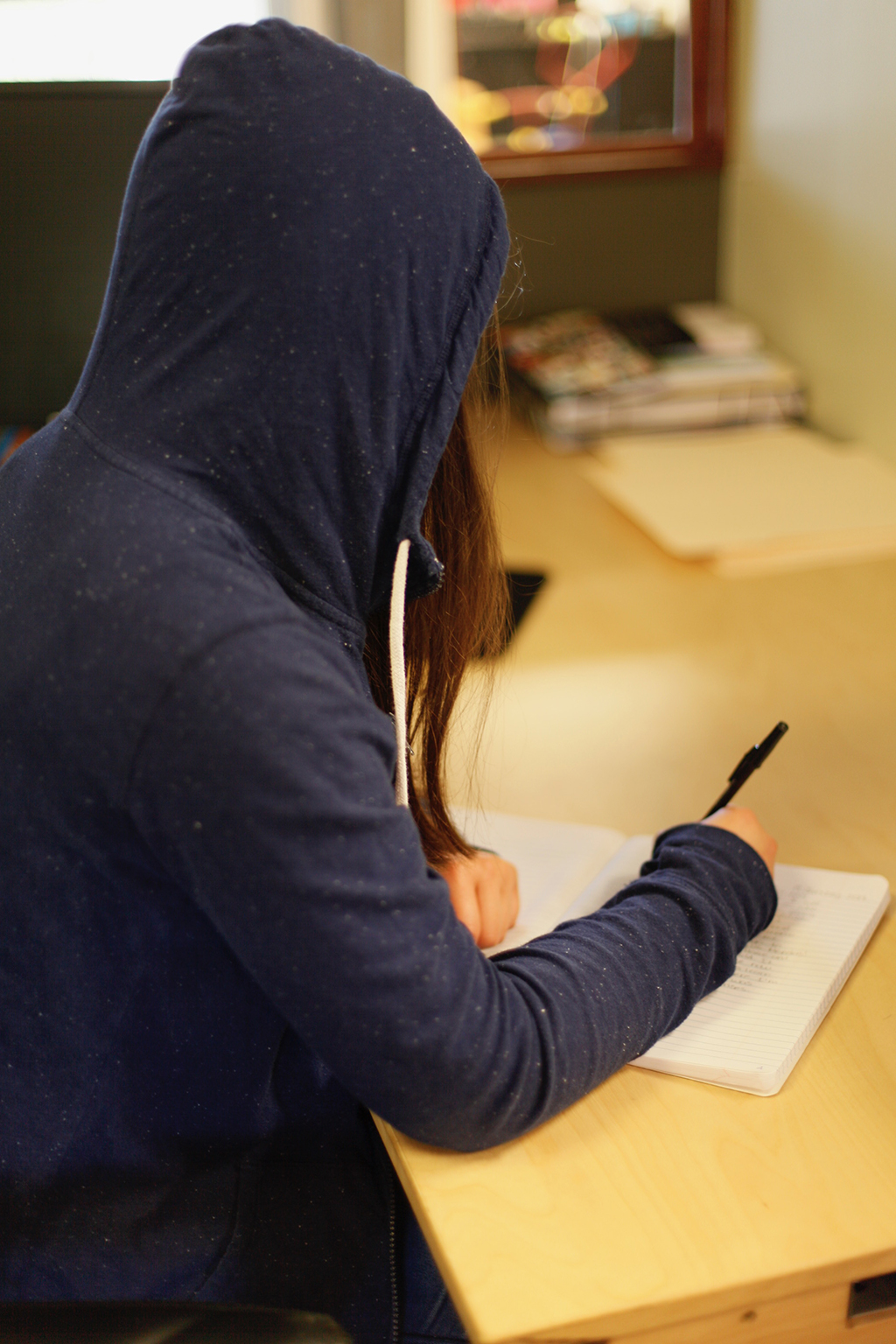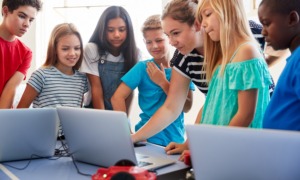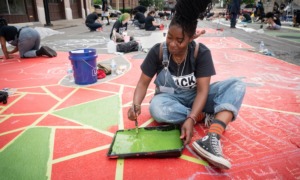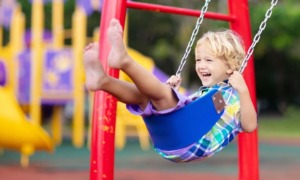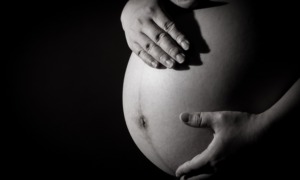When I was 11 years old, my mom and I constantly had to go to Los Angeles Police Department Rampart Division to pick up my brother at 2 a.m., or sometimes later. One night, my mom and I were both worried because it was midnight, and my brother hadn’t arrived home. Suddenly, we heard a knock at the door — it was a man and a woman who looked worried.
“Arrestaron ah Edgar,” they said. They’d arrested my brother.
My mom and I, of course, thought we just had to go pick him up, but when we got to the police station and asked for my brother, they told us he was going to spend the night there. We had to go back home and call the next day. He was 16, and I was afraid of losing him.
When we called the next day, they told my mom he was being charged with attempted murder and first-degree murder with a weapon, and that he was going to be transferred to a juvenile facility until the judge would decide otherwise.
My mom couldn’t believe it. She was in shock, and so was I. At the time, I was the only one of us who understood and could speak English.
Therefore, I had to speak to the attorney and translate any questions that my mom had and the updates in my brother’s case. I read hundreds of pages of the interviews and interrogations my brother had with the officers when it came out. I wanted to be able to fully understand his case for all of us.
A new beginning
I was 8 years old when my mom told me she was going to start filing papers to come to the United States. I was really happy because I thought we would just come for a visit, and I remember bragging to my friends in El Salvador about how I was going to get on a plane.
My dad passed away when I was 6, and unfortunately I never got to meet him in person. His passing impacted the whole family, which consists of my two older brothers — Alberto, Edgar — and my mom and me. In particular, it affected my brother Alberto, the oldest, and Edgar, the middle child. They started hanging out with the wrong crowd. When I found out that Alberto wasn’t going to travel with us, I was devastated. At the time of our departure, he was in jail because of gang ties. Mom and I arrived to the United States on July 19, 2010.
I had to mature faster than other kids. When we left El Salvador, I understood that we were moving to the United States because my mom wanted a better future for our family. When my brother Edgar got incarcerated back in 2011, my mom was disappointed because all her hopes and dreams of a successful future for him were suddenly vanished.
Acceptance
I understand that my brother made a mistake, but we wouldn’t be human if we didn’t make mistakes. I also know it wasn’t a small wrong either, but he’s already paying for his actions. Edgar, was sentenced for 15 years to life on Dec. 18, 2015, with the threat of deportation as soon as he finishes his term.
At first I was mad at him and upset that I couldn’t be with him anymore. I remember all the times that both of my brothers and I would play hide and seek in El Salvador. And I remember how each Christmas we would spend the night at my grandma’s house and light up fireworks till the next day. I was lost in my own world for a good amount of time when Edgar went away because it was the first time I felt truly alone.
Now I realize that everything happens for a reason, because if Edgar didn’t get arrested he would have never opened his eyes and realized all the mistakes he was making and everything he was missing out on. He wouldn’t value life as he does now.
Watching my brother go to jail opened my eyes to the fact that I want to help and work with youth who have been incarcerated. My experience with my brother has taught me to see life in different way and to be more open minded and grateful for everything I have.
There is no age requirement for the ability to feel pain over an uncontrollable situation. I’m 16 years old and I’ve probably seen more of the system than most youth out in society. When young people make mistakes, the consequences shouldn’t be so drastic. There needs to be more involvement in the communities to teach young people from an early age what is right and wrong so they can avoid places like jail.
Although it’s been difficult to be separated from my brother, when I heard he found an outlet for his feelings through creative writing, I was happy for him. InsideOUT Writers is an organization that works with youth inside juvenile hall through creative writing workshops. After a while, I reached out to IOW to see how I could get involved, and they graciously accepted me as an intern. I was excited to work with them.
The minute I stepped into the IOW office, everyone welcomed me; they had a family already but didn’t mind adopting me into it. As an intern, I help put together writings from families to youth inside Barry J. Juvenile Hall, as well as Christmas letters for them from formally incarcerated youth.
Now, with a film about IOW on the verge of hitting select theaters across the nation, it’s a little scary because everyone gets to see what so many incarcerated youth are dealing with on the inside. I hope the film helps to overcome some of the stereotypes that people have about youth who have committed crimes. They aren’t monsters, they are people who have feelings just like everyone else.
Katherinne, 16, lives in South Los Angeles and is happily completing her high school education. The film she references is “They Call Us Monsters” by Benjamin Lear.


